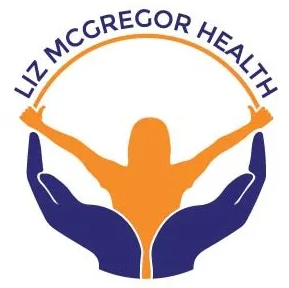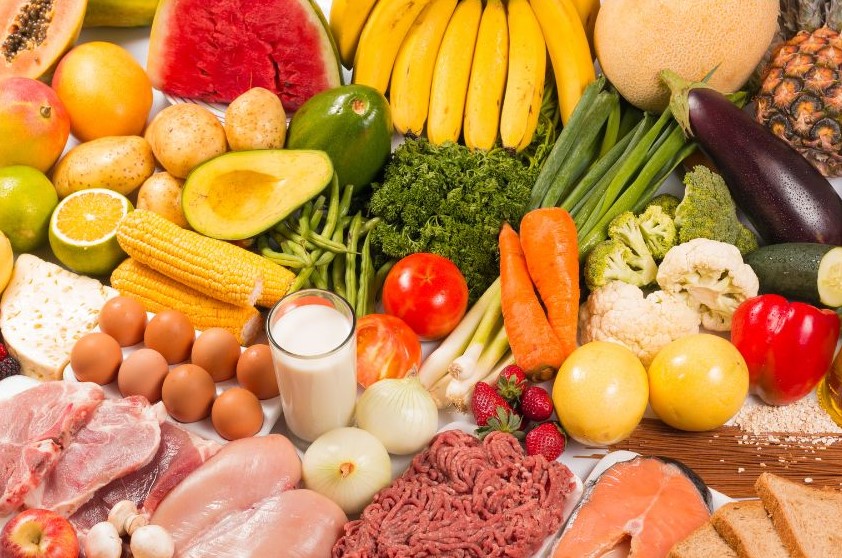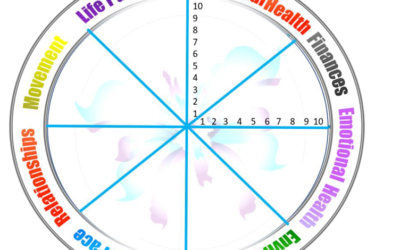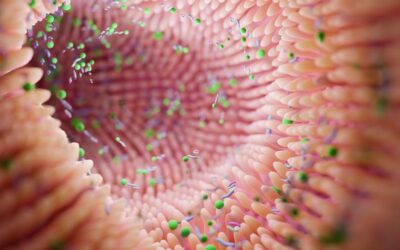There was a fabulous piece of detailed research by Wakeman, Bond and Mason in 2020 that never hit the headlines.
They took a really detailed survey of micronutrient (vitamins and minerals) intake in women in the UK and came up with some worrying results.
They found that very few women are well-nourished before, during or after pregnancy and giving birth – at any stage of life, in fact.
This is serious given that vitamins and minerals in recommended amounts are essential for health.
These low levels of micronutrients can impact not only women’s own health in different ways, but also their children’s health and later development.
Nutritional insufficiencies during foetal and infant life increases the risk of many chronic diseases (often cardiovascular disease and diabetes) in later life.
This is scary stuff.

Many women I have met think that if they take a pregnancy supplement, that is all they need to keep them and their baby healthy during pregnancy.
Almost none of them know that the oral contraceptives they may have used before pregnancy may have depleted nutrients including folic acid (folate), vitamins B2, B6, B12, vitamin C and E and the minerals magnesium, selenium and zinc.
It altered their absorption of essential fatty acids, too.
Supplements are quick and simple (and I have some recommendations at the end of this document), but they are not a substitute for real, healthy food.
While fewer women are starving in the UK (60% are overweight), the evidence is that many women are over-fed but under-nourished.
It is clear that we need both good food and good supplements to bridge the gaps.
What to do?
See the table below to discover the shocking statistics and what to eat to plug the gaps, for your own health and those you love.

Let’s start off with looking at gaps in Vitamin intake
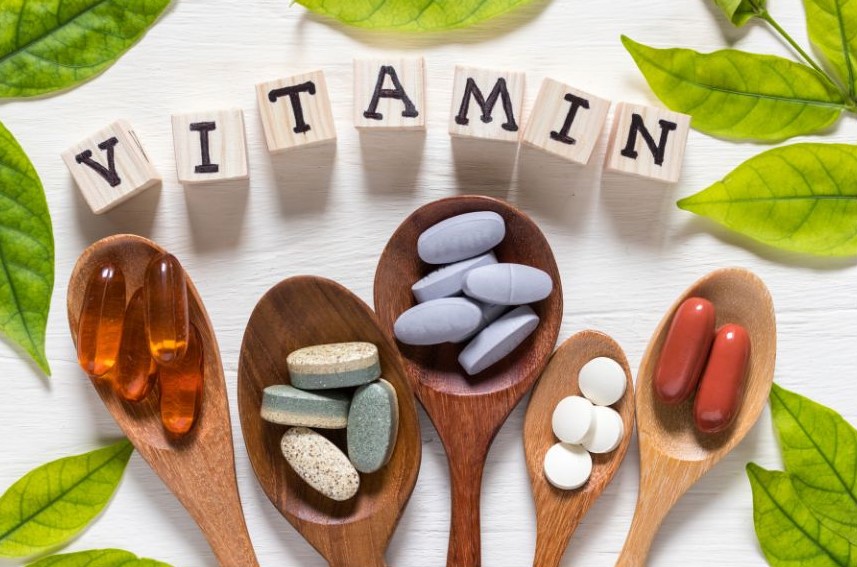
| Nutrient insufficiency or gap (Vitamins) | What does that mean for your health and those you love? | Signs that you or those you love might be short of this | Food to plug the gaps |
| One in 10 women have a vitamin A intake below the lowest recommended intake | Vitamin A promotes good vision, immune function, bone development, cellular differentiation, growth and reproduction, detoxification of pesticides and other man-made toxins. Eyes, skin and gut l need vitamin A or they can become hard, dry and unable to carry out normal functions, increasing infection risk and severity | Hard to adjust from bright light to low light, dry, bumpy skin on the backs of your arms, dry eyes, diabetes, acne, psoriasis, dry skin generally, persistent vaginal thrush, abnormal cervical cells, frequent infections, poor wound healing, gut issues | Egg yolks, whole milk, butter and oily fish and liver. Easily absorbed Carotenes (pro-vitamin A) are found in dark green leafy vegetables and yellow, red and orange vegetables such as peppers, carrots, squashes and sweet potatoes, but these are not as well absorbed and converted into active Vitamin A (retinol). Eating fat with the vegetable (such as butter on carrots or broccoli) increases conversion |
| Riboflavin (B2) – 14 per cent have a riboflavin intake below the lowest recommended intake | Riboflavin (B2) is needed for energy production in all cells, to break down pesticides and other toxins in the liver, and to protect against oxidation such as in cholesterol. Essential for the metabolism of iron and for the health of the nervous system | Cracks at the corners of your mouth; mouth ulcers, sore tongue; sore, dry eyes; light sensitivity, acne, depression, anxiety and fatigue | Organ meats such as liver, kidney and heart, (which just shows where you use it most) nutritional yeast, almonds, mushrooms and wheatgerm |
| Folic acid (folate) [B6] 9 out of 10 women of childbearing age (91 percent) had a red blood cell folate concentration below the lowest threshold 2 out of 3 women are not taking a folic acid or folate supplement before pregnancy | Lack of folic acid (folate) [B6] during pregnancy increases risk of neural tube defects in the offspring. Needed to make the myelin (insulation) that wraps around nerve fibres; needed for all rapidly dividing cells such as red blood cells and gut cells | Depression, macrocytic, megaloblastic anaemia (red blood cells are too large, probably alongside B12 deficiency), mood disorders, heart disease, cervical cell changes, diarrhoea, lower levels likely if taking anti-epilepsy drugs | Green leafy vegetables, beans and lentils, brown rice, nutritional yeast, liver, wheatgerm, soya flour, walnuts. Folate is easily destroyed by heat, so cook greens very lightly or eat raw leafy greens |
| vitamin B12 status was marginal in around 6% of women | Even with enough iron, deficiency of B12 still causes anaemia. Needed for nervous system function and neurotransmitter production | Macrocytic, megaloblastic anaemia (blood cells are too large, probably alongside folate deficiency) History of taking antacids, fatigue, mouth ulcers, low levels associated with numbness and tingling, mood disorders, muddled thinking, dementia, heart disease | Animal products such as beef, liver, poultry, fish, seafood and eggs. (Seaweeds do contain some forms of B12 but these are much less useable by humans) |
| Vitamin D3 Up to 90 per cent of women of reproductive age have blood levels of vitamin D below the recommended threshold | Regulates calcium and phosphorus absorption, essential for immune system function, helps to prevent cancers | Folk who do not get out into the sunlight, those with darker skin tones, vegetarians, vegans, people with heart disease, osteoporosis, joint and muscle pain, diabetes | Tinned sardines, salmon, tuna, shrimp, butter, sunflower seeds, liver, eggs. Vegetarians and vegans may need to supplement, especially in the winter in the UK, and get plenty of safe sun exposure |
And now for the missing minerals…
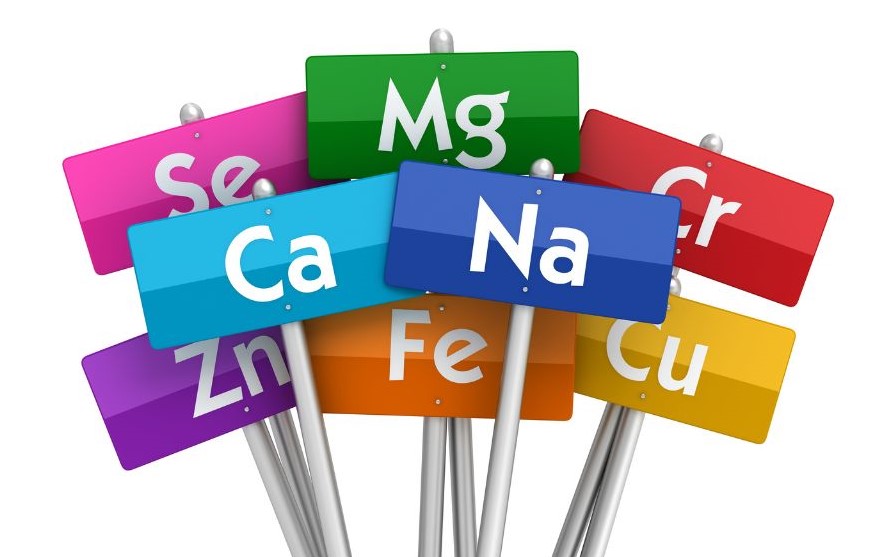
| Nutrient insufficiency or gap (Minerals) | What does that mean for your health and those you love? | Signs that you or those you love might be short of this | Food to plug the gaps |
| Iron – More than one quarter (27 percent) of women aged 19-64 have intakes of iron below the lowest recommended intake | Lack of iron can lead to anaemia, with permanent feelings of tiredness and poor energy. Used in blood and muscles to transport oxygen into the cells, energy release, immune function and collagen synthesis, Decreased development of immune tissue, lower antibody production, less efficient white cell activity | Anaemia, decreased immune function, learning disabilities in children, shortness of breath, fatigue. Symptoms can be more common in people on a vegetarian/vegan diet if they do not supplement with iron, along with B6 and B12 | Seaweed (kelp), liver, red meat, nutritional yeast, blackstrap molasses, wheat bran, eggs, pumpkin seeds, , sunflower seeds, parsley, millet, almonds, dried prunes, dandelion greens, walnuts, meat, black olives. Plant-based sources of iron (pulses, grains, vegetables etc) contain iron, but in a less bioavailable form than the iron in meat |
| Calcium – one in ten women (11 percent) aged 19-64 had a calcium intake below the lowest recommended intake | Low calcium intakes can increase risk for poor bone health, crucial role in nervous system function, blood clotting, muscle contractions | Osteopenia, (reduced bone density) osteoporosis, muscle twitches, high blood pressure | Kelp, cheese, cabbage , kale, bone broths, dairy products, sesame seeds, figs, blackstrap molasses, almonds, green leafy vegetables, sardines, canned with bones, salmon, canned with bones |
| Magnesium – 11 percent of 19-64-year old women had magnesium intakes below the lowest recommended threshold | Need for about 500 different processes in the body, including creating energy, proteins and healthy fats, healthy heart function, muscle relaxation,]. Studies have shown that oral magnesium supplementation reduces insulin resistance and improves glycaemic control indicators and cardiovascular risk factors among people with type 2 diabetes | Insomnia, confusion, fatigue and irritability. High blood pressure, heart arrythmias, pre-diabetes and diabetes, common diabetes complications such as diabetic nephropathy and diabetic retinopathy, muscle cramps | Kelp, wheat bran and wheatgerm, green leafy vegetables, nuts, especially almonds and cashews, whole grains, beans and lentils and seafood |
| Potassium – about 38% of women had potassium intakes below the lowest recommended threshold | Nerve transmission, muscle contraction, glucose metabolism and maintaining all cells | Nervous system irregularities, muscle weakness, slow heart rate, potassium insufficiency more likely in pre-diabetes, diabetes, heart disease and high blood pressure | Dulse, kelp, sunflower seeds, wheatgerm, almonds, raisins, parsley, Brazil nuts, walnuts, dates, figs, avocado, potato with skin, cooked beans, broccoli, bananas, chicken, carrots, celery |
| Iodine – 15% not achieving the lowest recommended intake for iodine, particularly not meeting the criterion for iodine sufficiency in pregnant and lactating women | Given the crucial importance of iodine for brain development in the developing foetus and baby, these low iodine intakes in women of reproductive age are a cause for concern. Essential component of thyroid hormones | Poor thyroid health, depression, fatigue and chilliness; poor immune function, slow metabolism, weight gain and cardiovascular disease. Prone to infections. Thyroid function can also slow down after birth as the mother’s body tries to conserve energy to feed and grow the baby | Seafood generally, shellfish, salmon, sardines, beef liver, pineapple, tuna, eggs, peanuts |
| Selenium – 46 per cent of 19-64-year-old had selenium intakes below the lowest recommended threshold | Essential nutrient for liver detoxification especially of heavy metals such as lead and mercury; supports DNA repair, anti-oxidant; works with vitamin E. Low selenium associated with increase cancer risk; heart disease, poor thyroid health and cardiovascular disease | Asthma, inflammation, joint tenderness, fatigue, pre-cancerous changes | Brazil nuts, seafood, meats, butter, herring, wheatgerm, apple cider vinegar, scallops, barley (only if grown on selenium-rich soil) |
| Zinc – 8 per cent of women in this group have an intake below the lowest recommended intake | Critical for multiple enzyme reactions, immune function; wound healing, skin oil gland production | Frequent infections, hair loss, skin changes such as eczema, psoriasis or acne, spots on fingernails, diarrhoea, dandruff, rheumatoid arthritis, diabetes | Oysters, red meat, shellfish and seafood, ginger root, pecans, Brazil nuts, split peas, liver, egg yolk, oats |
Missing Essential Fatty Acids, found in fish and some vegetables
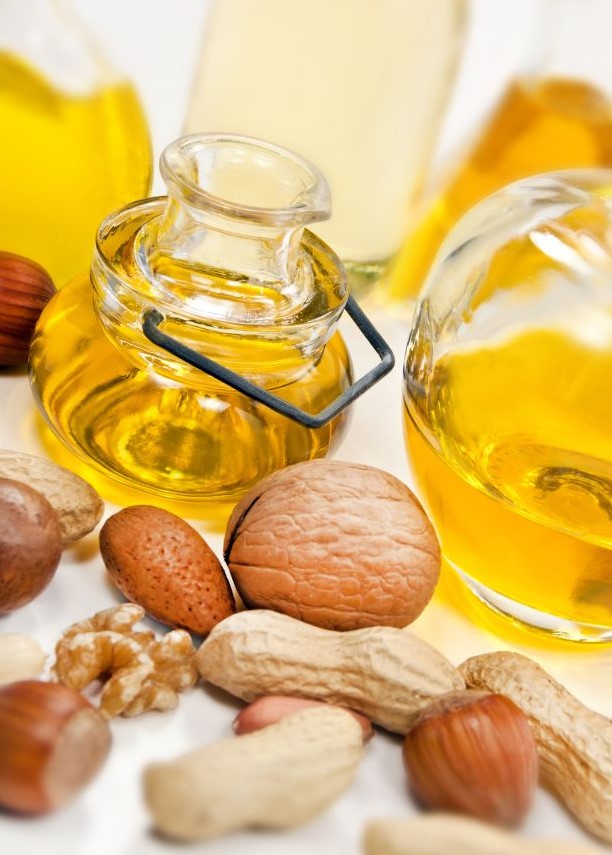
| Nutrient insufficiency or gap (Others) | What does that mean for your health and those you love? | Signs that you or those you love might be short of this | Food to plug the gaps |
| Oily fish, the major source of long chain omega-3 fatty acids is well below recommended intakes. | Lack of omega 3 fatty acids in pregnancy can increase the risk of poor brain and eye health in infants and children. Essential for eye and vision, cell membrane integrity, skin health, joint mobility, and normal liver function; normal brain function and positive mood, heart function, blood pressure; gut health, normal (fasting) blood concentrations of triglycerides, inhibits skin cancer cells | Pre-natal or antenatal depression, inflammation, gut issues, irritable bowel worsening vision, achey joints, ‘moodiness’, difficulty focusing on tasks, mild to moderate depression, high blood pressure, high triglycerides (blood fats produced by the liver from carbohydrates) dry skin, high blood pressure, suspicious freckles and moles that change colour, shape, size or itch (always get these checked out with your GP) | Salmon, mackerel, anchovies, sardines, herring and trout, seabass, flaxseed and flaxseed (linseed) oil, walnuts and walnut oil |
| Fibre – Mean intake of dietary fibre was 20.7 g and only 4 per cent of adult women met the 30 g daily fibre recommendation | More likely to have constipation. Slow bowel transit can increase risk of bowel cancer in later life. Constipation slows down the release of toxins and can lead to brain fog feeling sluggish, headaches but also increases all cancer risk, cardiovascular disease and stroke | Constipation, headaches, fatigue, high blood pressure, menstrual issues | Oats, cabbage, vegetables, raw and cooked, beans and lentils, nuts, seeds, flaxseeds, ground or whole, chia seeds, ground or whole, brown rice, quinoa, apples, potatoes with the skin |
| Depleted microbiome – (fewer friendly gut bacteria) | Anxiety and depression can be associated with disturbed gut flora; antibiotic use depletes all friendly as well as unfriendly bacteria and leaves the way open to nastier pathogens and yeasts that are normally kept in check by the friendly bacteria | Candida (thrush) diarrhoea, constipation, irritable bowel, indigestion, bloating, wind | Fermented foods such as sauerkraut, coconut or water kefir, kombucha, kimchi (Korean spicy sauerkraut) Chicory extract, Jerusalem artichokes, garlic onions and leeks feed healthy bacteria; all vegetables are helpful |
| Women consume on average 4.2 portions of vegetables and fruit each day with only 32 per cent eating the recommended five or more portions of vegetables and fruit a day | Low levels of antioxidants found in vegetables and fruit increase risk of serious health conditions such as heart disease, stroke and type 2 diabetes. Vegetables and fruit are sources of vitamins and minerals, potassium and folate | You or your loved ones are eating the same few vegetables and fruits over and over again; folk who “don’t eat their greens”, picky eaters | Add tomato, chopped peppers and mushrooms to your breakfast; add chopped fruit or berries to porridge or yoghurt; make a smoothie from different vegetables and fruit, add raw vegetable strips such as carrot, peppers and celery to your lunch |
The authors of the research recommended improving the food choices, and a supplement containing recommended intakes of all micronutrients as well as omega-3 fatty acids, to bridge the gaps.
As a Nutritional Therapist, Naturopath and Wellbeing Coach, I agree completely.

I recommend the supplements in the table below – many others are available.
These are sourced from various companies via the Natural Dispensary for a healthy pregnancy and during breastfeeding and beyond.
You register with them and then order from their site.
If you put this into the Promo code box, LMCG15 (15%Discount) this ensures you receive a 15% discount on the usual web price of all supplements.
(Full financial disclosure – I do receive a tiny commission – if you spend £10, I receive 80p)
It is sometimes possible to get some of the supplements a few pence less from Amazon – you are welcome to check and order them from there, if you wish.
The Natural Dispensary is usually easier though, and everything comes together.
Go to https://naturaldispensary.co.uk/
Or phone them on UK number 01453 757792; International number +44 1453 757792
| Brand | Search Product Name or Code | Comment |
| BioCare | Multi Nutripowder | Powder, dissolve in warm water and drink throughout the day, great for those who don’t like swallowing tablets |
| BioCare | Methyl Pregnancy Multinutrient | Capsules can be opened and sprinkled onto food |
| Nutri-Advanced | Multi-Essentials for Pregnancy | Large tablet, can be split |
| Cytoplan | PregnaPlan | Large tablet, can be split |
| Nutri-Advanced | Multi-Essentials for Women | Large tablet, can be split |
| Cytoplan | Wholefood Multi | Capsules can be opened and sprinkled onto food |
Omega 3 Fatty Acids
| Brand | Search Product Name or Code | Comment |
| BioCare | OmegaCare | Liquid format in bottle, useful for larger doses and adding to food |
| BioCare | Mega EPA Forte | Capsules |
| BioCare | Vegan Omega 3 | Capsules |
| Nutri-Advanced | Eskimo fish oil | Various types available, capsules or liquid |
| Cytoplan | Fish Oil | Capsules |
| Cytoplan | Omega 3 Vegan | For vegetarians, vegans and those with fish allergy |
Thank you for taking the time to learn more about your health and your children’s health.
What you learn will help other family and friends that you love, who may be struggling with difficult health conditions.
To find out more about how I can help you, your children, or your loved ones prevent and relieve chronic health conditions, and achieve life-long better health, please click the button below to book a complementary mini-consultation.
I’d be happy to help you.
For references, see the research article and link below:
Citation: Wakeman M, Bond T, Mason P (2020) Women’s Health in the UK-Dietary and Health Challenges across the Life Cycle with a Focus on Micronutrients. J Virol Mycol 4: 118. DOI: 10.29011/2688-8750.100018

